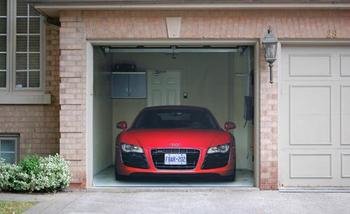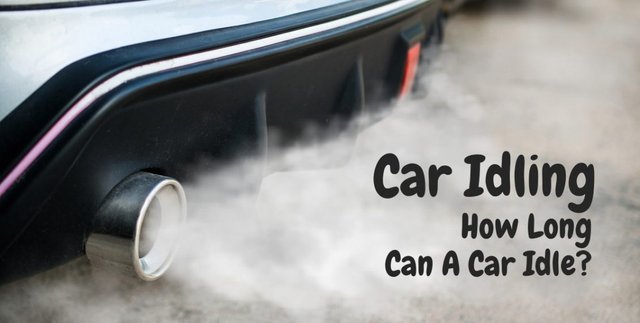**SIMPLE PRACTICES THAT ECONOMIZES FUEL USAGE IN AUTOMOBILE**
Hello steemians, here we will take a look at the various practices that will enable you to use your vehicle more efficiently and save well. Well you dont have to have a car before you read this post this is because we are in a revolution and a jet age where the advancement of technology has made it possible for the automobile to be quite affordable.
About two-third of the oil in USA and other advance countries are used for transport where about half of this two-third(i.e one-third) is consumed by passenger cars and light trucks. This tells us that the automobile/light truck consumes most of the oil been produced.
Also, a lot car owners also complain that their vehicle consumes fuel more than usual this is simply because they do not observe certain practices which will be listed below shortly
To maximize the fuel economy of your vehicle you should try to observe the some practices before driving,while driving and after driving
What to do before driving:
Certain things done before driving can make a significant difference on the fuel cost of the vehicle while driving. Below we discuss some measures such as using the right kind of fuel,minimizing idling etc
1)PARK IN THE GARAGE
(laughs) it might sound lame but parking your automobile in the garage helps to keep the car warm so that starting the car the next morning will be quite easy but when we just leave the car in the open air at night when temperature gets really low causing the car and its engine to be cold also, starting it up the next morning might not be quite challenging due to the temperature of the car causing wastage of fuel during the time the car refuses to start.
2)Avoid carrying unnecessary weightRemove any snow or ice from the vehicle,and avoid carrying items you do not need,especially heavy ones (such as snow chains,old tires,books) in the passenger compartment,trunk,or the cargo area of the vehicle .This wastes fuel since it requires extra fuel to carry around the extra weight. An extra 100lbm decreases fuel economy of a car by about 1–2 percent. Some people find it convenient to use a roof rack or carrier for additional cargo space. However,if you must carry some extra items,place them inside the vehicle rather than on roof racks to reduce drag. Any snow that accumulates on a vehicle and distorts its shape must be removed for the same reason. A loaded roof rack can increase fuel
consumption by up to6percent in while driving. Even the most streamlined empty rack increases aerodynamic drag and thus fuel consumption. Therefore,the roof rack should be removed when it is no longer needed.
3)start the car properly and avoid extended idling
A car consumes 50% more fuel during,therefore, less time or no time should be spent in warming up the car Start driving as soon as the engineis started,but avoid rapid acceleration and highway driving before the engineand thus the oil fully warms up to prevent engine wear.Keep in mind that an idling enginewastes fuel and pollutes the environment.
4)Keep the tirea inflated to the recommended maximum pressurestudies have proven it that keep your tires at the right maximum pressure saves fuel. When we drive the vehicle at the recommended pressure the vehicle encounter a rolling resistance which is very small when compared the tire not at the right pressure.
Underinflatedtires run hot and jeopardize safety,cause the tires to wear prematurely,affect
the vehicle’s handling adversely,and hurt the fuel economy by increasing therolling resistance. Overinflated tires cause unpleasant bumpy rides,and causethe tires to wear unevenly. Tires lose about 1 psi pressure per month due to airloss caused by the tire hitting holes,bumps,and curbs. Therefore,the tirepressure should be checked at least once a month. Just one tire underinflatedby 2 psi results in a 1 percent increase in fuel consumption.Underinflated tires often cause fuel consumption of vehicles to increase by 5or 6 percent.
Now lets look at the practices required during driving
WHAT TO DO DURING DRIVING
- Avoid sudden starts and stops:when the car is started suddenly and accelerated suddenly,it consumes more fuel than usual,jeopardize safety and also not friendly with the engine component same goes for abrupts stops except that this also wears the brake plate faster
2)Drive at moderate speedAvoiding high speeds on open roads results in safer driving and better fueleconomy. In highway driving,over 45-50 percent of the power produced by theengine is used to overcome aerodynamic drag (i.e.,to push air out of the way). Aerodynamic drag and thus fuel consumption increase rapidly at speeds above 55 mph,as shown in . On average,a car uses about15-17 percent more fuel at 60-65 mph and 25-30 percent more fuel at 60 -70mph than it does at 55 mph. (A car uses about 10 percent more fuel at 100 km/h and 20percent more fuel at 110 km/h than it does at 90 km/h.
4)Drive at constant speed It should be noted that fuel consumption is minimum when the car is moving at a constant speed(this is when the speedometer is not moving. This is because during constant speed the power produced is used to only overcome the external forces(frictional resistance,rolling resistance) i.e during constant speed driving no power is used in accelerating the car.The vehicle should be accelerated gradually and smoothly since extra fuel is squirted into the engine during quick acceleration.Using cruise control on highway trips can help maintain a con-stant speed and reduce fuel consumption. Steady driving is also safer,easier on the nerves,and better for the heart.
5)Avoid resting your foot on the clutch and brake pedal during drivingResting the left foot on the brake pedal increases the temperature of the brakecomponents,and thus reduces their effectiveness and service life while wastingfuel. Similarly,resting the left foot on the clutch pedal lessens the pressure onthe clutch pads,causing them to slip and wear prematurely,wasting fuel
6)Use highest gear during highway drivingwhen you drive at the highest gear the engine rpm during this instance is reduced and since the fuel consumption is a function of the engines rpm therefore, you save more fuel when you drive using the highest gear
7)Reduce usage of the airconditionerThe engines' airconditioner takes it power from the engine shaft and when in use this consumes fuel alot especially when the air conditioner is used more than usual. When on the high way you do not really need the airconditioner to feel cool you can just let the windows of your car down a little and let the virgin air circulate and cools you rather than using your air conditioner which consumes fuel
Now lets look at the practice after driving
WHAT TO DO AFTER DRIVING
You cannot be an efficient person and accomplish much unless you take goodcare of yourself (eating right,maintaining physical fitness,having checkups,etc.),and the cars are no exception. Regular maintenance improves performance,increases gas mileage,reduces pollution,lowers repair costs,and extends engine life. A little time and money saved now may cost a lot later inincreased fuel,repair,and replacement costs.Proper maintenance such as checking the levels of fluids (engine oil,coolant,transmission,brake,power steering,windshield washer,etc.),the tightness ofall belts,and formation of cracks or frays on hoses,belts,and wires,keeping tires properly inflated,lubricating the moving components,and replacing clogged air,fuel,or oil filtersmaximizes fuel efficiency (Fig. 9–66). Clogged air filters increase fuel consumption (by up to 10 percent) and pollution by restricting airflow to the engine,and thus they should be replaced.
Clean oil extends engine life by reducing engine wear caused by friction,removes acids,sludge,and other harmful substances from the engine,improvesperformance,reduces fuel consumption,and decreases air pollution. Oil also helps to cool the engine,provides a seal between the cylinder walls and the pistons, and prevents the engine from rusting. Therefore, oil and oil filter should be changed as recommended by the vehicle manufacturer.
I actually never knew that parking of cars in a garage is this helpful ......
Nice post
How about the determination of the car you use,most Cars are not fuel economical right?
Yes i will still write a post on that also